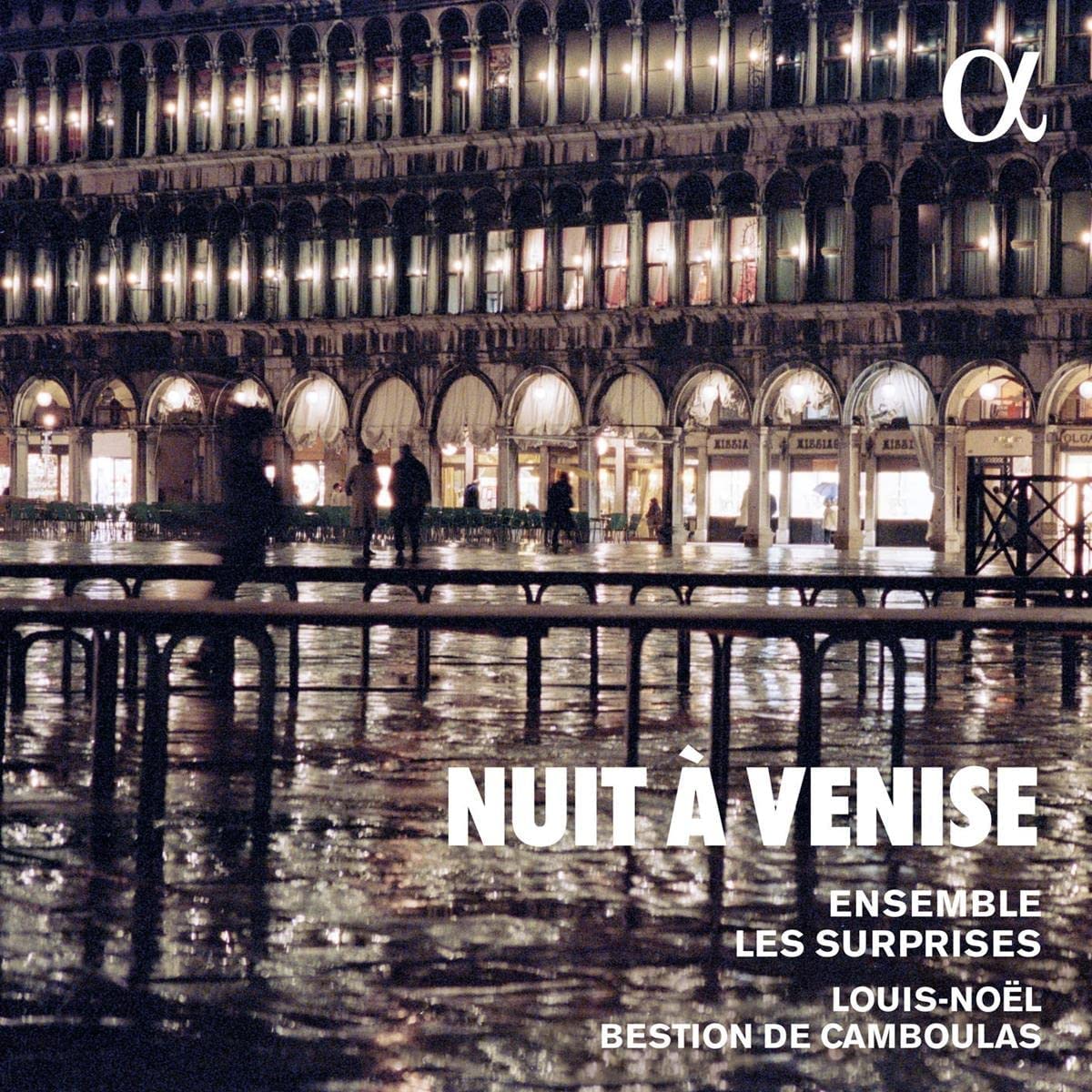Ensemble Les Surprises, directed by Louis-Noël Bestion de Camboulas
68:47
Alpha Classics 927
In an interview included in the booklet the conductor (henceforth Camboulas to avoid repetition of his unusually complex name) tells us in typically imaginative French style that he wanted on this disc to ‘reimagine a large-scale evening of festivities not only on the Piazza San Marco and in the Basilica, but also in the gardens and salons of the city’s palaces’. If this suggests the CD is aiming at an unspecialised audience, such suspicions are enhanced by the total omission of any source references or even context, where it exists, there being no notes other than the interview. Such sloppy presentation is unforgivable in this day and age, ‘Cavalli – Agnus Dei’ being of little help to anyone (it comes from the Missa Concertata, published in Musiche sacra, 1656).
It is all the more regrettable given that the music is exceptionally well performed and largely avoids more obvious choices, Lotti’s famous 8-part Crucifixus being perhaps the only real exception to that. That searing piece can also be used as an illustration of one of the real strengths of the vocal performances, which to their great benefit are performed one voice to a part. The strength referred to is the unfailing sweetness of tone of the two sopranos of Les Surprises, Jehanne Amzal and Eugénie Lefebvre, which is complemented by the fine voices and excellent ensemble of the remaining six voices. The ensemble as a whole seems equally at home with the athletic vocal agility required for the bravura writing in items such as Monteverdi’s ‘Dixit Dominus secondo’, SV 264 (from the Selva morale e spirituali, 1641) or ‘Laudate Dominum primo’ from the same collection, though the latter is a rare instance where I don’t agree with Camboulas’ tempo, it sounding to me too rushed to allow the singers to articulate the text with the necessary clarity.
Among the lesser-known works included two brief pieces, ‘Ingemisco’ and ‘Oro supplex’ from Giovanni Legrenzi’s 8-part Prosa pro Mortuis (Dies Irae) particularly stand out for their exquisite penitential dissonance, the former for full choir based on falling sequences, the latter an alto solo. The Cavalli ‘Agnus Dei’ is another jewel, alternating homophony and polyphony, and here sung with wonderful breadth and rapt inner spirituality.
Despite Camboulas’ intimation of a mixture of sacred and profane, there are no secular vocal items included, though the presence of a couple of settings of typically sensual texts from the Song of Song’s (Alessandro Grandi’s 3-part ‘O quam tu pulchra es’ and Monteverdi’s ‘Pulchrae sunt genae tuae’, a contrafactum (not by Monteverdi) of the madrigal ‘Ferir quel petto, Silvio?’ from the Fifth Book might be thought compensation, and we are also given an instrumental arrangement of another madrigal from Book 5, ‘Troppo ben puo’. Otherwise, instrumental items are liberally scattered throughout the selection, making for a nicely contrasted programme that would make for an excellent introduction to 17th-century Venetian repertoire. In case my above admonishments about presentation have aroused concerns about texts, full texts and translations are included and the recording in the Abbaye aux Dames at Saintes is atmospheric.
Brian Robins
